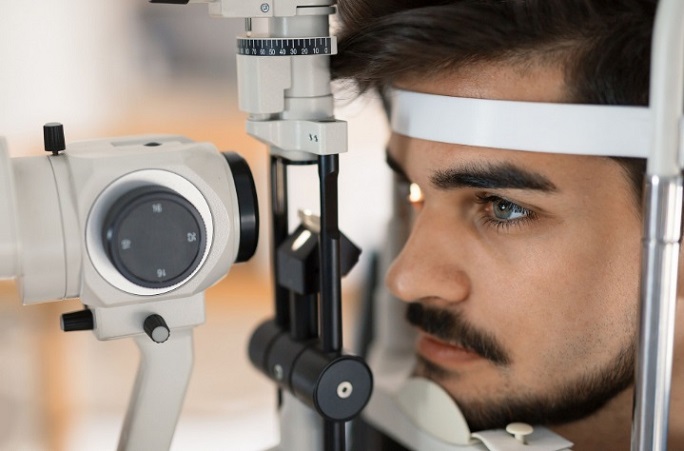Nikhil Prasad Fact checked by:Thailand Medical News Team May 31, 2025 8 months, 3 weeks, 4 days, 19 minutes ago
Thailand Medical News: A groundbreaking review conducted by researchers from the University of Warwick in the United Kingdom and the University Campus Bio-Medico of Rome in Italy is shedding new light on how subtle changes in eye movements and pupil reactions might help detect and monitor long COVID, a mysterious condition still affecting millions worldwide.
 Scientists Explore Eye Movements as Clues to Long COVID Brain Issues
Scientists Explore Eye Movements as Clues to Long COVID Brain Issues
The study aimed to find physical, measurable signs in the eyes that could explain why many long COVID sufferers continue to experience persistent neurological symptoms such as brain fog, fatigue, and headaches, long after the initial infection subsides.
The international research team—comprising experts from the University of Warwick’s School of Engineering and Warwick Medical School, and from the Department of Engineering at the University Campus Bio-Medico of Rome—analyzed 15 existing scientific studies to see whether changes in eye behavior could serve as reliable indicators of long COVID. This
Thailand Medical News report dives deeper into their findings, which suggest that the eyes may hold vital clues to the cognitive impacts of the condition.
The Hidden Neurological Struggles Behind Long COVID
While COVID-19 primarily affects the lungs, it is now clear that many people continue to suffer from long-term effects even after recovering from the acute phase. Common lingering symptoms include fatigue, memory issues, mental confusion or “brain fog,” anxiety, and even vision disturbances. Long COVID is now recognized by medical authorities such as the UK's National Institute for Health and Care Excellence (NICE), which defines it as a condition with symptoms lasting more than 12 weeks with no other explanation.
Despite being widespread, these neurological symptoms are difficult to measure and often dismissed, as many patients show normal results on traditional scans and tests. That’s where eye-tracking technology comes in.
What the Eyes Reveal About Brain Function
Using tools such as infrared cameras and eye-tracking systems, researchers have noticed significant changes in long COVID patients’ eye movements. Key findings from the reviewed studies include:
-Slower or delayed reaction times in saccadic movements (quick eye shifts used to read or scan surroundings)
-Abnormal smooth-pursuit tracking (used when following moving objects)
-Disrupted pupillary light reflexes, including unusual pupil size, slower or faster constriction/dilation, and changes in pupil velocity
-Visual field deficits and abnormalities in visual evoked potentials, suggesting reduced responsiveness of the brain to visual stimuli
-Increased blink rates and reduced stereopsis (depth perception), especially in cognitive-demanding tasks
These abnormalities mirror issues in brain function such as decrea
sed neural energy, disrupted connectivity between brain regions, and imbalances in neurotransmitters like norepinephrine, which are often tied to fatigue and brain fog.
Why Eye Tracking Could Change the Game
Traditional testing for neurological function—such as MRIs or spinal taps—can be costly, invasive, and sometimes inconclusive. But automated eye tests offer a non-invasive, accessible, and inexpensive alternative that can track subtle changes over time. This makes them ideal for clinics that follow long COVID patients or evaluate cognitive therapies.
One study included in the review used a virtual reality headset to test how long COVID patients responded to visual tasks. Those affected showed clear impairments in reaction times and visual focus compared to healthy controls, highlighting the real-world potential of such digital tools in assessing brain function.
Challenges and the Road Ahead
Despite promising findings, the review also found gaps in current research. Not all studies followed consistent criteria for diagnosing long COVID, and some did not record how long it had been since the patients were infected. There’s a need for more standardization, especially when using terms like “post-COVID” or “long-haul COVID.”
Still, the conclusion is hopeful. The researchers believe that further refinement of these digital eye tests could pave the way for effective monitoring and even intervention strategies for people suffering from long COVID’s cognitive effects.
In conclusion, the eyes might offer a unique window into the brain, providing practical tools to detect and understand the lingering effects of COVID-19. As the medical community continues to battle the long-term consequences of the pandemic, these digital biomarkers could help fill the void in diagnostics and care for millions suffering in silence. Future studies must focus on larger, more diverse populations and work toward integrating these tests into everyday clinical practice.
The study findings were published in the peer reviewed journal: Applied Sciences.
https://www.mdpi.com/2076-3417/15/11/6126
For the latest on Long COVID, keep on logging to
Thailand Medical News.
Read Also:
https://www.thailandmedical.news/news/brains-waste-disposal-system-does-haywire-in-many-post-covid-19-individuals-causing-various-neurological-symptoms
https://www.thailandmedical.news/news/breaking-long-covid-individuals-found-to-have-a-disruption-in-the-critical-brain-bridge-linking-the-brainstem-and-cerebellum
https://www.thailandmedical.news/news/brain-blood-flow-abnormalities-found-in-older-adults-with-long-covid
https://www.thailandmedical.news/articles/long-covid
https://www.thailandmedical.news/pages/thailand_doctors_listings
